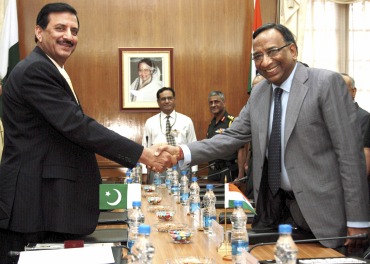
India and Pakistan have failed to agree on the modalities for the demilitarisation of Siachen, at the end of the 12th Defence Secretary level talks in Delhi, and, both sides issued a joint statement which "welcomed" the ongoing process and stated that the discussions were held in a very frank and cordial atmosphere.
The joint statement added that both countries have agreed to continue the discussions in a "meaningful and result-oriented manner," and noted that the ceasefire has been holding since November 2003.
Apart from the delegation-level talks, the two defence secretaries met one-on-one, and the Pakistani delegation also called on Defence Minister A K Antony.
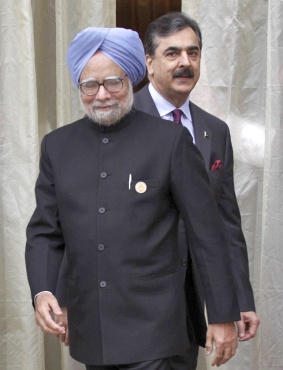
The talks are a follow up of the decisions taken after the meeting between Prime Minister Manmohan Singh and his Pakistan counterpart Yousaf Raza Gilani, on the sidelines of the South Asian Association for Regional Cooperation conclave at Thimpu in February 2011. The leaders agreed to resume talks that were stalled since the 26/11 terrorist attack in Mumbai.
A lot has happened recently. The killing of Osama bin Laden in Pakistan has exposed that country as a breeding ground for international terrorism. The attack on the naval base at Karachi, as also a series of other attacks in retaliation to Osama's killing, reflect the hold that terrorists have in that country.
India has exhibited great restraint by standing up to the commitment made by DR Singh, and going ahead with the talks despite Pakistan being in a tenuous situation.

That the talks would not make much progress was expected. Firstly, because they were resumed after a hiatus of nearly four years. Since the seventh round of Defence Secretary-level talks, Pakistan has been adopting a rigid position. Nothing has happened in the recent past to suggest a change in perception.
Siachen has been a sensitive issue since 1984. Following efforts made by Pakistan to send mountaineering expeditions to Siachen heights, the Indian Army launched "Operation Meghdoot", and established physical control over its territory.
Having lost the initiative, Pakistan denounced the Indian action as a violation of the Shimla agreement which barred the use of force to bring about a change in the Line of Control.
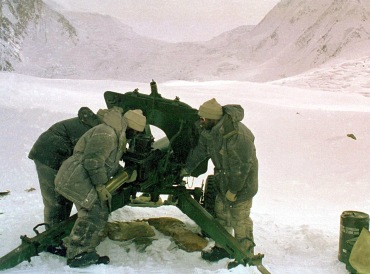
In 1989, the two countries did inch towards an agreement, but Pakistan resorted to stalling tactics and the matter did not progress.
The position held by the two countries remains unchanged. India wants Pakistan to authenticate on a map, the Actual Ground Position Line along which the troops are presently deployed.
The Indian position is that the line runs northwards towards the glacier along the watersheds formed by the Saltoro Range as per the internationally accepted principle of a border.
Pakistan, on the other hand wants India to withdraw to the positions held in 1984 when the dispute erupted. Indian troops have been stationed in the Siachen Glacier ever since
The AGPL is not clearly marked beyond the grid reference point of NJ-9842 The Karachi agreement of 1949 described the Cease Fire Line as being up to point NJ 9842 and northwards towards glaciers.
Pakistan claims that the line joins NJ 9842 with the Karakoram pass, which is north-west and not 'northwards' as mentioned in the Karachi agreement.
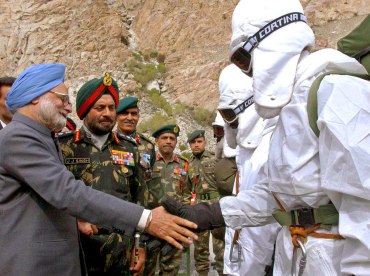
India has, for long, desired to deescalate tension in the snowbound and sensitive region.
On June, 12, 2005, Dr Manmohan Singh became the first prime minister to visit Siachen and said, "Siachen is called the highest battlefield where living is very difficult. Now time has come that we make efforts that this battlefield is converted into a peace mountain. "
Dr Singh made it clear that there could be "no redrawing of boundaries". The then Indian Army Chief, General JJ Singh, re-emphasised India's strategic requirement of clearly delineating the position on a map.
Pakistan has not agreed to the demarcation of the actual ground positions, and for this reason the prime minister's vision of a mountain of peace has remained a dream.
There is more to Siachen than meets the eye as far as Pakistan is concerned. As a first step, the country wishes India to withdraw its troops from Siachen.
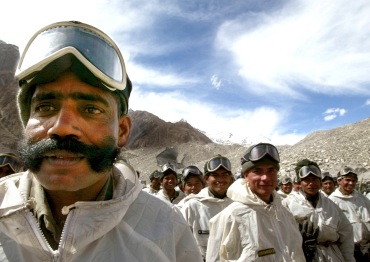
Once Indian troops leave the area, a jihadi intrusion to fructify expansionist designs is definitely not beyond the realms of reality, regardless of the assurances given. Pakistan is keen to deny India the capability to monitor the sensitive Pakistan-China axis.
Contiguity with the Northern Areas would be broken and the Pakistan will have the capability of breathing down Indian Army positions in Ladakh.
Unless the Line of Control is delineated, after taking into account the actual ground positions along the Saltoro Range, it is unlikely that India would change the status quo.
However, the positive fall out of the defence secretary level talks is that the two sides have agreed to continue the dialogue. In addition to the operational and strategic issues, an understanding between the two countries will help preserve the sensitive ecology of this region.
India has achieved the existing strategic ascendancy with sweat, toil and blood. Tremendous sacrifices have been made by the Indian Army to ensure the country's territorial integrity.
India's stand on the issue of securing foolproof guarantees before considering a redeployment of forces holds merit. It is sincerely hoped that in the next round Pakistan will come with a more open mind and flexible approach.